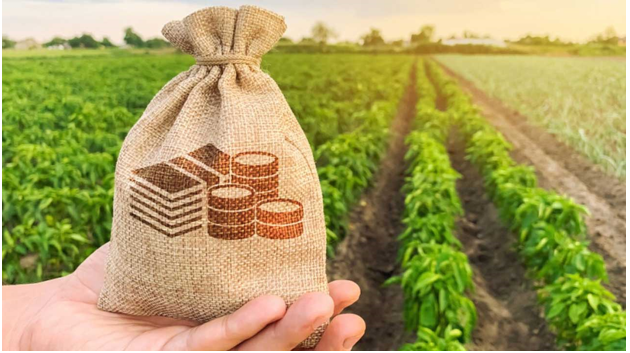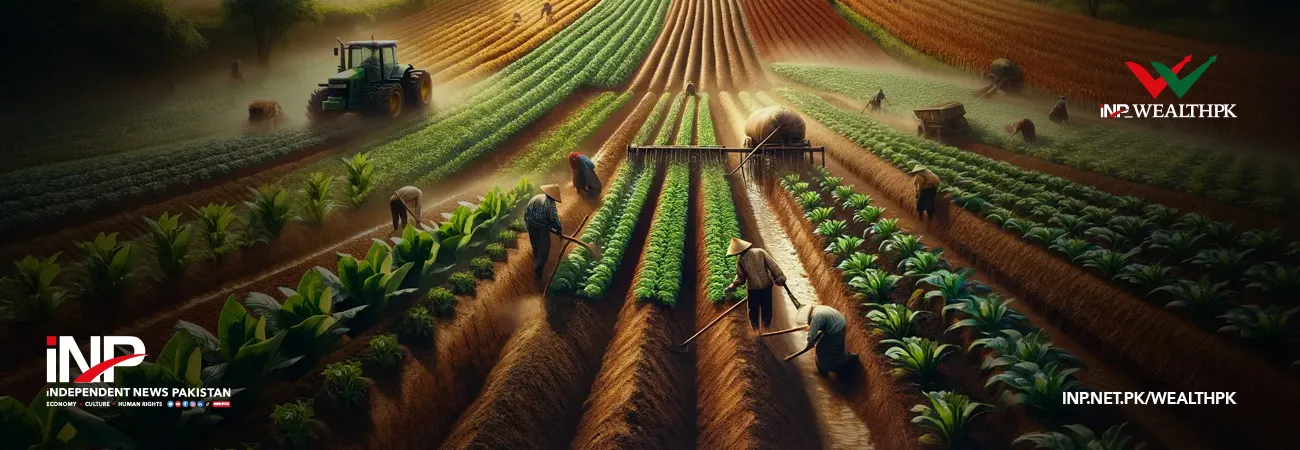INP-WealthPk
Arooj Zulfiqar
Experts have stressed the critical need for change in Pakistan’s agricultural taxation and land redistribution to address entrenched inequalities while promoting fiscal stability and social equity within the sector.

“Pakistan’s agricultural sector, which employs nearly 40% of the labour force and contributes around 20% to the GDP, stands as both an economic pillar and a battleground against inequality. The sector's unique duality of being both traditional and critical for economic growth has long been undercut by challenges surrounding land distribution and taxation policies. Addressing the entrenched inequities in these areas that limit Pakistan's full agricultural potential is the key,” said Shahzad Amir Naveed, an agriculture sector specialist at the Ministry of Planning, Development & Special Initiatives. Talking to WealthPK, he said, “The historical exemption of agricultural income from taxation has led to revenue shortfalls, which, in turn, have contributed to fiscal deficits and economic instability.” Naveed said, “The case for introducing agricultural taxes is compelling. By implementing a progressive taxation system, larger landholders with more significant agricultural incomes can shoulder a fair share of the tax burden.
At the same time, exemptions or reduced rates for small-scale farmers can safeguard their livelihoods. This dual approach strikes a balance between fiscal responsibility and social equity.” Land ownership in Pakistan is marked by an imbalance where a small portion of large landholders controls a significant amount of arable land, while a vast majority of farmers work as tenants or smallholders with little land security. According to the statistics, around 64% of agricultural land is owned by a mere 5% of the rural elite, while the remaining 95% of small farmers and tenants struggle to sustain themselves on fragmented parcels, often less than five acres each. “This unequal distribution of land constrains small farmers’ access to financial credit, technological resources, and market linkages. Without land titles or stable ownership, tenant farmers face challenges in obtaining bank loans or participating in agricultural support programmes.
Consequently, these farmers are vulnerable to middlemen’s exploitation, lack bargaining power, and often end up trapped in cycles of poverty and debt,” explained Naveed. Meanwhile, speaking to WealthPK, M Azeem, a senior scientific officer at National Agricultural Research Centre (NARC), said, “To maximise the benefits of agricultural taxation, it is essential to modernise the tax collection process through the use of technology. Transparent and efficient collection mechanisms not only reduce tax evasion but also increase public trust in the system, which in turn can boost compliance.” “Furthermore, investing a portion of the revenue generated through agricultural taxes into rural development is a key strategy. These funds can be channelled into infrastructure development, agricultural modernisation, and other projects that can catalyse economic growth in rural areas,” Azeem emphasised.
Credit: INP-WealthPk





